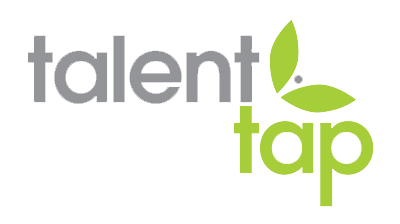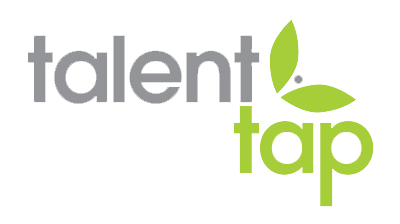Hello, How Can I Hire You? How To Champion a Positive Candidate Experience
By Alayna Christian, Talent Tap Virtual Assistant
May 30, 2023

What’s something that is so well-known within the recruitment industry that it's often overlooked? Candidate Experience! With the volatility of the market, the advancements of technology, the state of inflation, and more, it can be easy to forget about this critical piece of the recruiting process.
How do you define ‘Candidate Experience’?
Candidate Experience describes the experience a candidate has when undergoing a company’s recruiting and hiring process. This experience encompasses everything from the moment the candidate discovers the company - branding, website, job posting - to the job application, interviewing, and onboarding process. Let’s discuss how you should approach each with a candidate-centric process in mind.
Branding & Website
Your brand should follow a clear theme that allows for your candidates to obtain a clear understanding of who you are. Your website should work hand-in-hand with your brand to reveal what you do, and what your prospective employees could get out of working with you. Keep your website clean, easy to navigate, and up-to-date. This includes being mobile-friendly, as many folks apply to jobs via their mobile device in this day and age. There are many job seekers out there that overlook organizations due to the simple fact that their website was not up to snuff. Your website is your representation and a huge part of your brand. Invest into it.
Job Posting & Application Process
Your job posting should be concise yet descriptive, should have gender-inclusive language, include the compensation range for the roles, and designate if the role is remote, hybrid, or in-person. The shorter and more accurate the description, the better. Don’t get too caught up in discussing all the great things about your company in the job post - that’s what your website is for!
Additionally, the application process should be simple. Remember that a good amount of job seekers are using their phone to do their searches. If your application process takes longer than four minutes, you’re going to lose them. The application should only request only critical information like their resume, contact information, sponsorship requirements, and compensation requirements. Make sure your Application Tracking System (ATS) is up-to-date and can capture the appropriate information accurately.
The Interview Process
The interview process is arguably the largest portion of the candidate experience. The candidate is investing their valuable time into learning about your organization, so it is of paramount importance that you make it a positive experience for them.
- For starters, interview processes should not be lengthy. A good rule of thumb is three total interviews or less, not including the Recruiter screen (and of course there are exceptions to every rule according to the company needs). An interview process that drags on will most certainly result in lost candidates.
- Additionally, ensure that each interview is actually valuable - evaluate if that added interviewer actually needs to speak with the candidate, or you’re just feeling like you need another set of eyes. Ensure each interviewer knows what to cover with the candidate so the candidate isn’t continually repeating themselves.
- Diversify your interview team. Consider race, gender, position, and more. Candidates want to see that they can be themselves at a company and know that their unique and individual persona is valued with you.
- Lastly, provide timely communication. We all know how it feels to wait for any semblance of acknowledgement from a company we’re interviewing with. Make sure that your candidates know where they stand in the process by checking in with them on a regular basis throughout the process.
Offer & Onboarding
Last but not least is the offer & onboarding process. The real hiring portion. The offer process should be respectful, allow for reasonable negotiation, and meet the requests of your candidate. Don’t bring them all the way through the process just to offer them thousands less than what they asked for in the beginning. If there are changes to what the company can offer in compensation or benefits during the interview process, that should be communicated to the candidate. The candidate should come away from the offer conversation feeling excited about their next steps with you.
Onboarding begins once the candidate has accepted the offer. This is the process of bringing on or hiring a candidate as an employee of your organization. Your people (HR) team will work with your IT team and the candidate to ensure the candidate has everything they need to successfully join your team. Ensure there is clear communication from all parties involved, and that there is a plan to bring your new team member up to speed once they join. This includes a thorough introduction to the company, to their team, and to their role.
Why is the Candidate Experience important?
The benefits of having a positive candidate experience abound. Not only are you setting your candidates up for success in their potential future role with you, you’re also giving your company a good name in the marketplace. Candidates will experience increased excitement in joining your organization when given a positive experience. They may even let you get away with a couple more interviews than expected (but don’t lean on that! Keep processes short and sweet). Candidates are highly likely to share their experiences with colleagues, friends, and family; especially if they are memorable - in both good ways and bad. Ensuring that your candidate has a positive experience every step of the way will make for a memorable one that they are sure to share with others, even if not selected for the role. If the candidate has a terrible experience, they’ll most likely share that with others as well, leaving a bad impression with those who you haven’t even had the chance to reach.
At the end of the day, you need the candidate, they don’t truly need you. Treat these candidates how you would like to be treated, and for the value that you know they’ll provide to your organization. You’ll find that you’ll receive both more quality applicants and more sticky employees.
Share This Post!
Talent Tap Trends & Insights | Lancaster, PA



